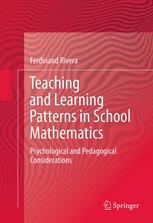

Most ebook files are in PDF format, so you can easily read them using various software such as Foxit Reader or directly on the Google Chrome browser.
Some ebook files are released by publishers in other formats such as .awz, .mobi, .epub, .fb2, etc. You may need to install specific software to read these formats on mobile/PC, such as Calibre.
Please read the tutorial at this link: https://ebookbell.com/faq
We offer FREE conversion to the popular formats you request; however, this may take some time. Therefore, right after payment, please email us, and we will try to provide the service as quickly as possible.
For some exceptional file formats or broken links (if any), please refrain from opening any disputes. Instead, email us first, and we will try to assist within a maximum of 6 hours.
EbookBell Team

4.0
66 reviewsThis book synthesizes research findings on patterns in the last twenty years or so in order to argue for a theory of graded representations in pattern generalization. While research results drawn from investigations conducted with different age-level groups have sufficiently demonstrated varying shifts in structural awareness and competence, which influence the eventual shape of an intended generalization, such shifts, however, are not necessarily permanent due to other pertinent factors such as the complexity of patterning tasks. The book proposes an alternative view of pattern generalization, that is, one that is not about shifts or transition phases but graded depending on individual experiences with target patterns. The theory of graded representations involving pattern generalization offers a much more robust understanding of differences in patterning competence since it is sensitive to varying levels of entry into generalization. Empirical evidence will be provided to demonstrate this alternative view, which is drawn from the author’s longitudinal work with elementary and middle school children, including several investigations conducted with preservice elementary majors. Two chapters of the book will be devoted to extending pattern generalization activity to arithmetic and algebraic learning of concepts and processes. The concluding chapter addresses the pedagogical significance of pattern learning in the school mathematics curriculum.